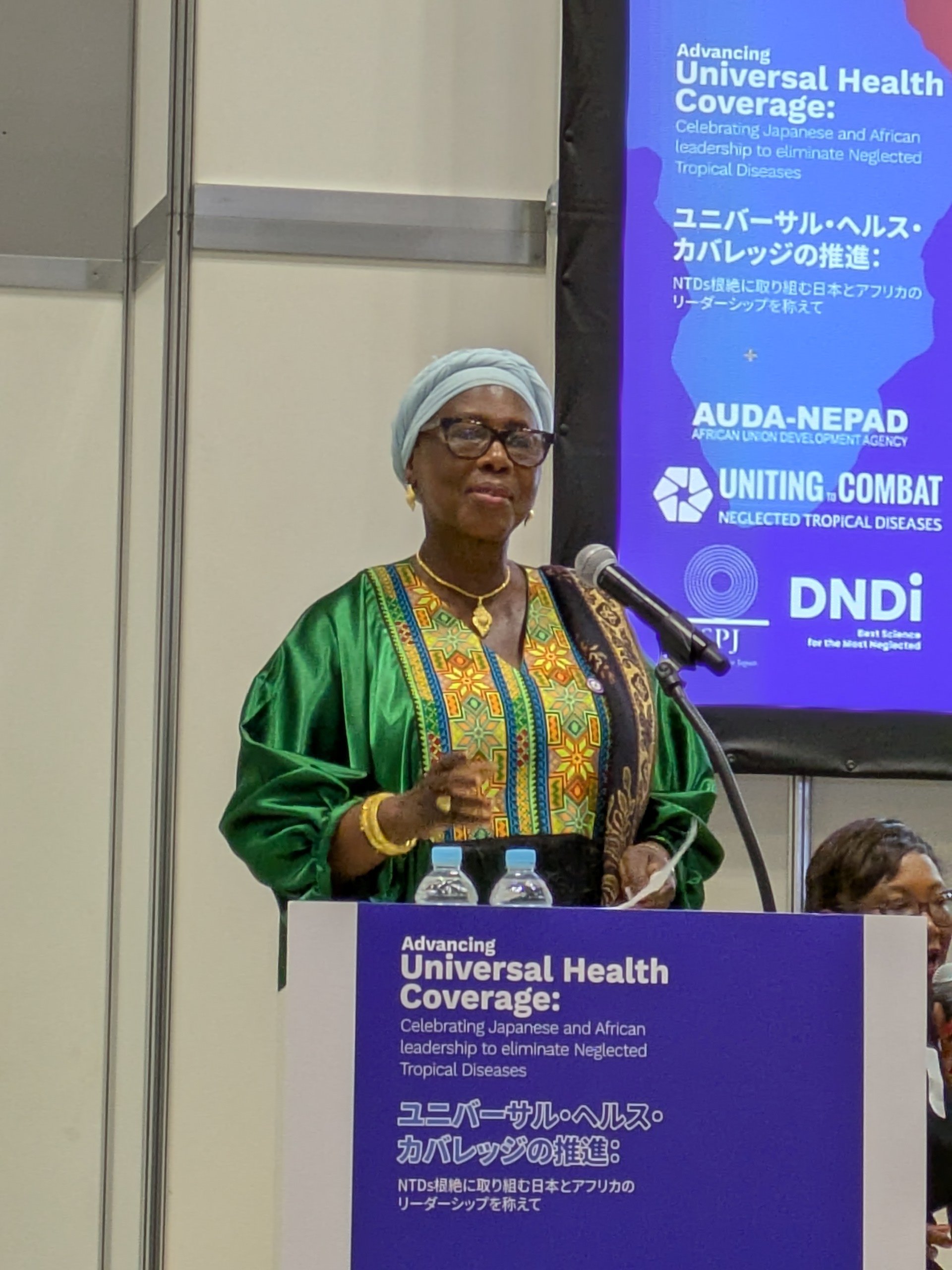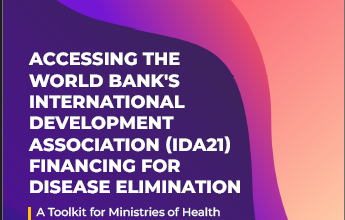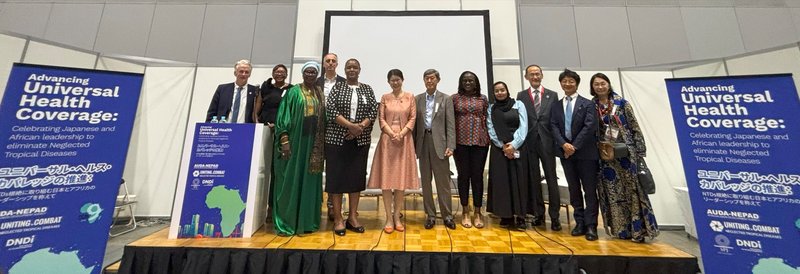
Leaders from Africa and Japan came together at a high-level TICAD9 side event in Yokohama to strengthen momentum against neglected tropical diseases (NTDs), a group of preventable and treatable conditions that affect more than 1.5 billion people worldwide, most of them in Africa. The event, co-hosted by AUDA-NEPAD, SDG Promise Japan, DNDI and Uniting to Combat NTDs, also reinforced the shared commitment of both regions to advancing universal health coverage (UHC).
The session was chaired by Professor Francisca Mutapi, Vice Chair of Uniting to Combat NTDs and Professor of Global Health Infection and Immunity at the University of Edinburgh and Deputy Director at TIBA. Professor Mutapi welcomed delegates emphasiging that partnerships between Africa and Japan are vital to defeating NTDs and advancing UHC. She highlighted the progress already achieved noting that 57 countries, including 24 in Africa, have now eliminated at least one NTD, but warned that momentum must be sustained to reach global targets.
"NTDs still affect over a billion people worldwide. They rob children of education, adults of livelihoods and communities of opportunity. But they are preventable, they are treatable, and as Africa and Japan have shown, they can be beaten."
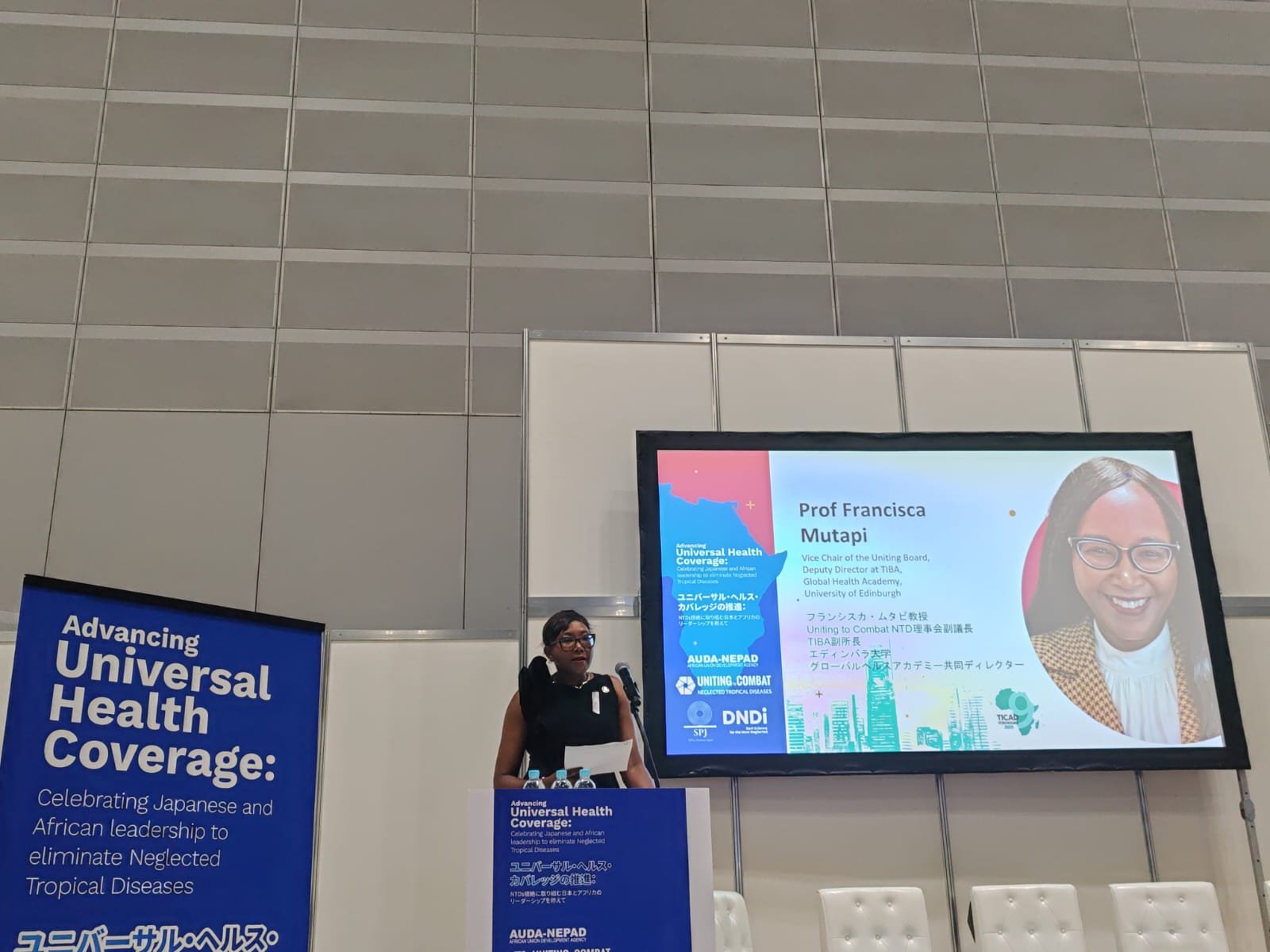
As Member of Japan’s House of Representatives and Secretary General of the Diet Task Force for Eliminating Neglected Tropical Diseases, Hon Ayano Kunimitsu represents Japan’s growing political leadership on these diseases. Her remarks, opening the session, reaffirmed Japan’s position as a long-standing champion of UHC and health equity. She said,
"Japan is committed to achieving UHC. This work is vital in ensuring that no one is left behind."
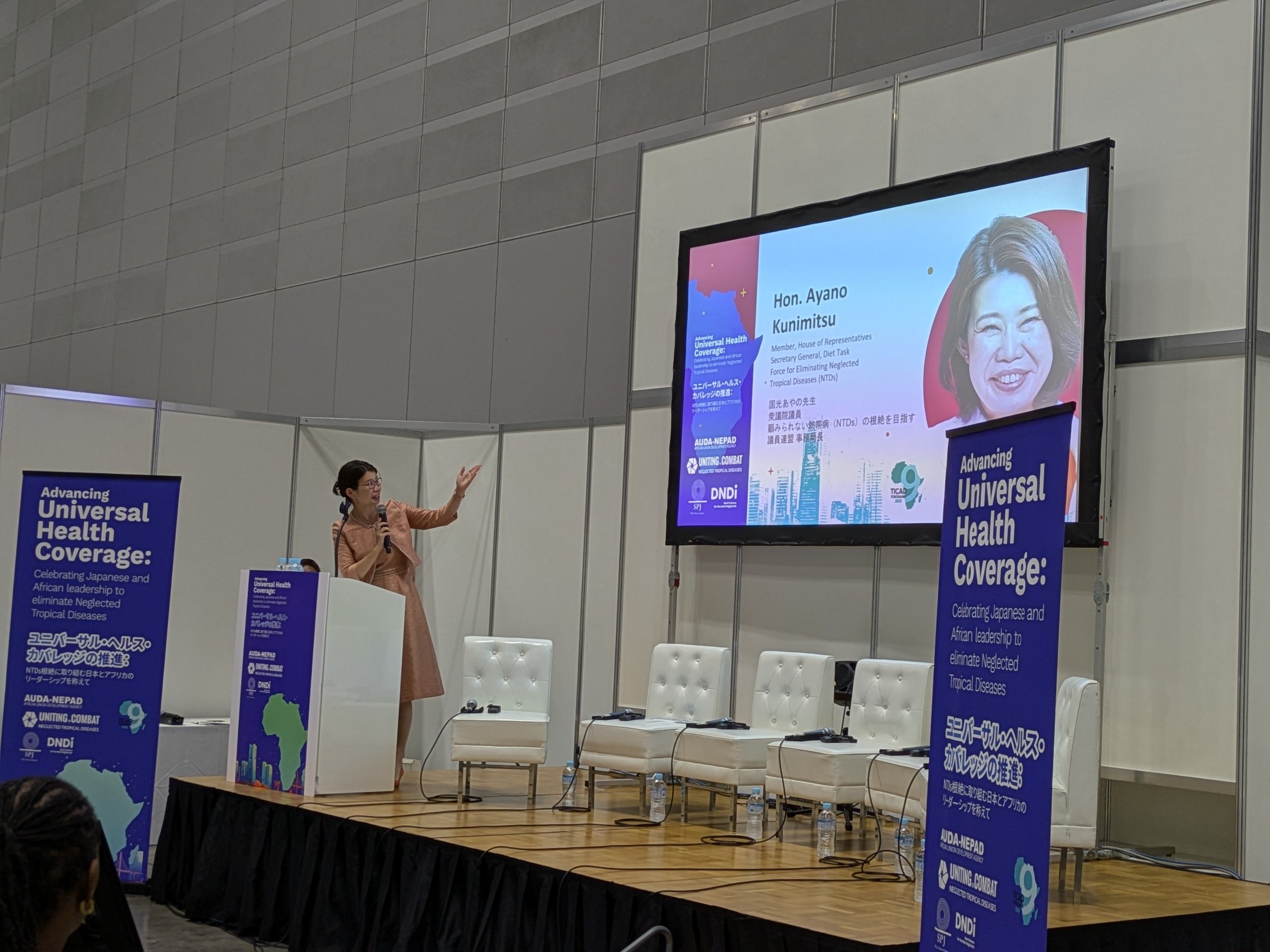
The event featured keynote addresses and a powerful panel discussion, underscoring the need for strong partnerships, sustained investment, and country ownership to end NTDs and strengthen health systems across Africa.
Africa carries nearly 40% of the global NTD burden. As of 2023, Nigeria accounted for approximately 93 million people requiring interventions for NTDs, representing about 6% of the global burden (of 1.49 billion people). The African Union has placed health at the heart of its Agenda 2063 agenda, partnerships with Japan and other global actors are seen as critical to building resilient systems and achieving disease elimination.
In a keynote address, representing AUDA NEPAD the African Union Development Agency, Ms Chimwemwe Chamdimba, Head of African Medicines Regulation Harmonization Programme said,
"We call on Japan and our global partners to continue to join forces with us, investing in Africa’s Health Economy, supporting innovation ecosystems, and ensuring that NTD elimination remains central to UHC and the Sustainable Development Goals."
"The elimination of NTDs is not merely a health outcome, it is a measure of our commitment to equity and resilience. If we can eliminate NTDs, we prove that no life is too remote, no disease too neglected, and no community too invisible to be served."
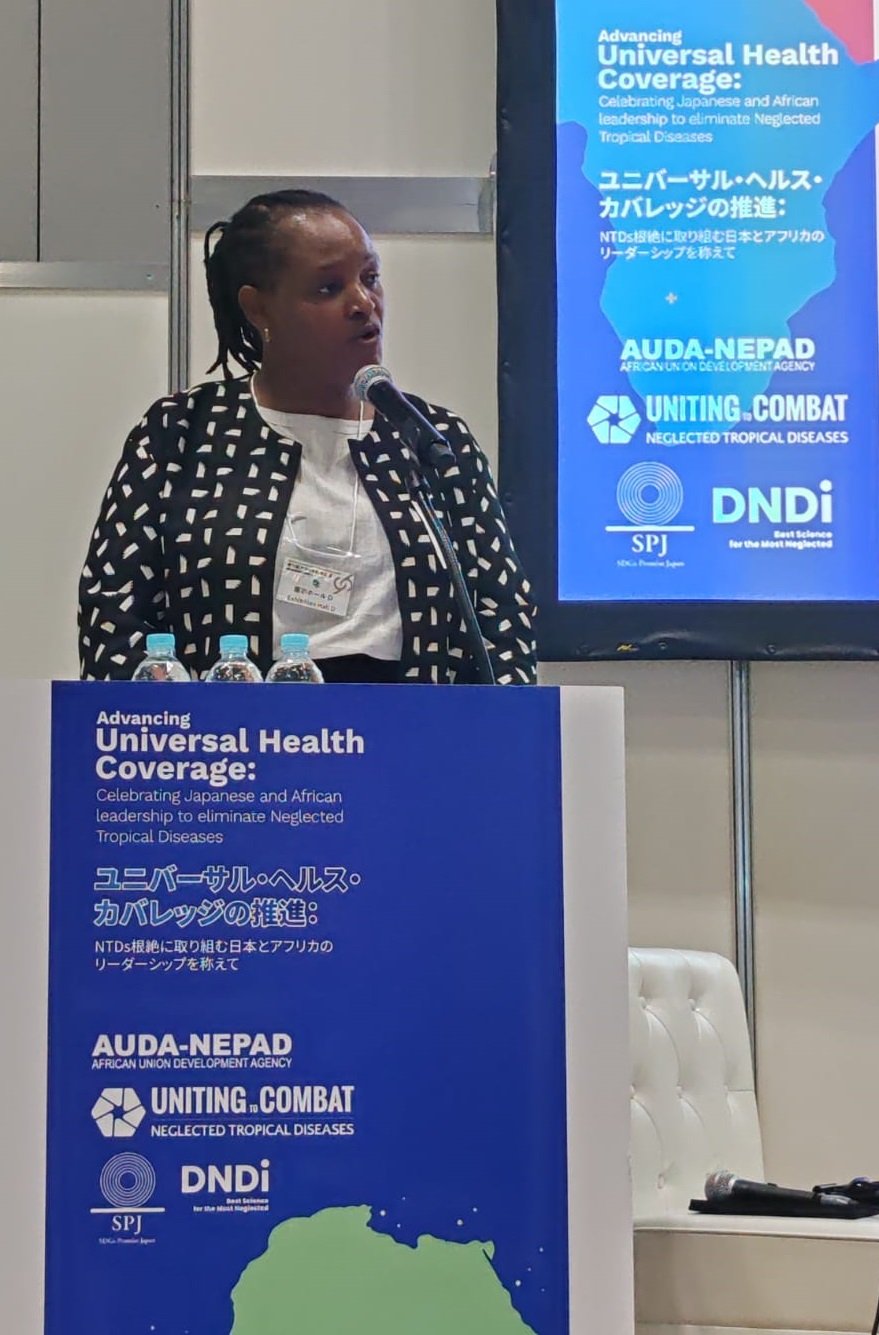
Dr Shinichi Kitaoka, Special Advisor to the President of the Japan International Cooperation Agency (JICA) and former President of JICA, reflected on Japan’s long-standing commitment to global health and called for continued collaboration with African partners. He underlined how Japan’s own development experience has long informed its global engagement, with investments in health and education seen as the foundation for prosperity. He said,
"Japan’s history is built on two pillars of education and health."
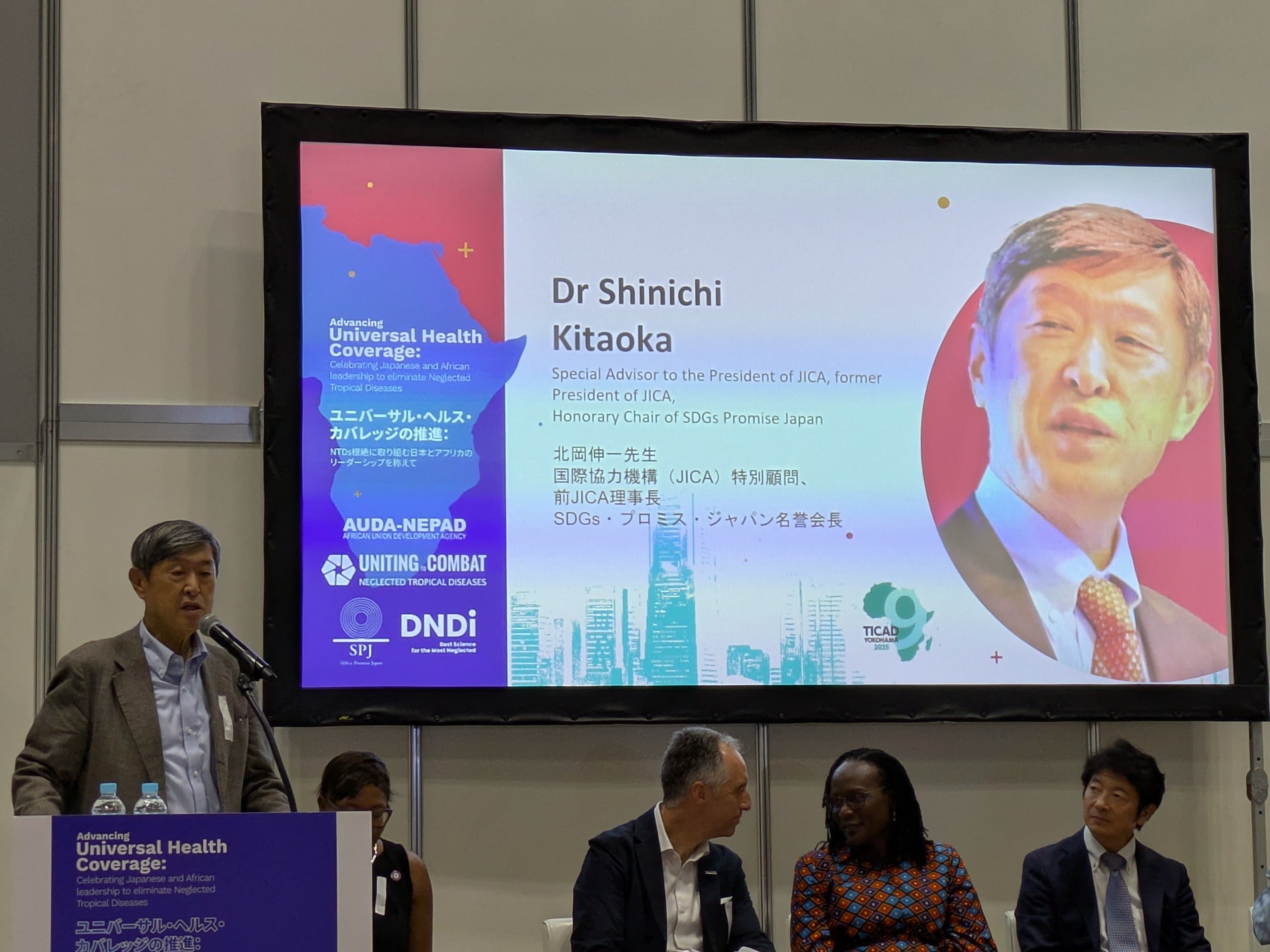
Dr. Elizabeth Juma, Team Lead; Expanded Special Project for Elimination of Neglected Tropical Diseases (ESPEN), WHO Regional Office for Africa shared some of her experiences during the session, having worked in malaria control and elimination for over 20 years. Having worked extensively as a clinical research scientist, programme officer, and technical director and advisor for initiatives at both national and international levels her message was the importance of African leadership.
She said,
“Partnerships must strengthen country ownership, not be a substitute for it.”
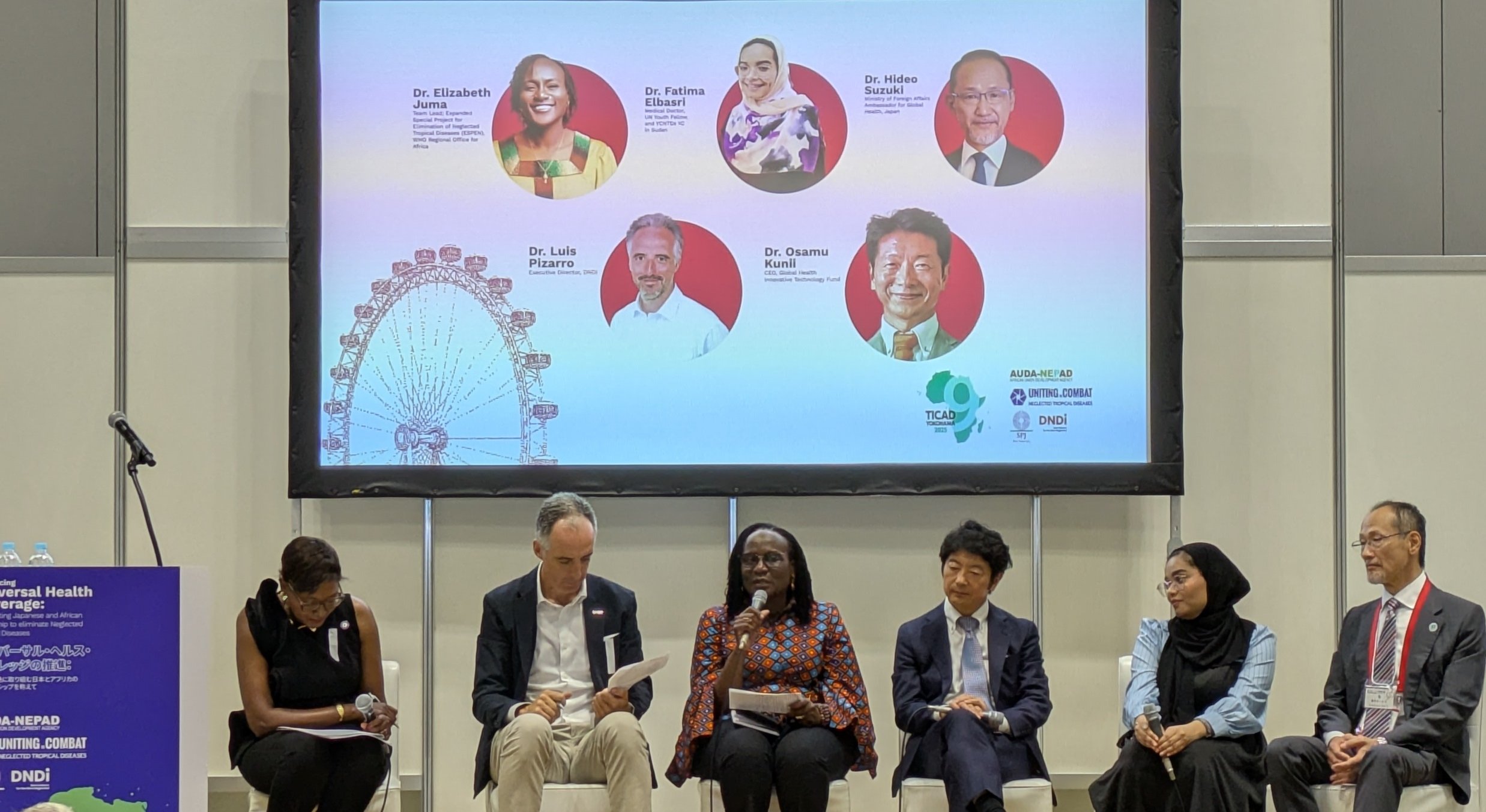
Dr Luis Pizarro, Executive Director of DNDi, shared his experiences of working on medical projects for several years in West Africa, and praised Africa’s leadership. He said,
“Africa is leading. And this is a collective, horizontal approach, where everyone around the table is thinking about what can be done together. If we do not work together, it will never get there. We have to work together in collaborative collective action.”
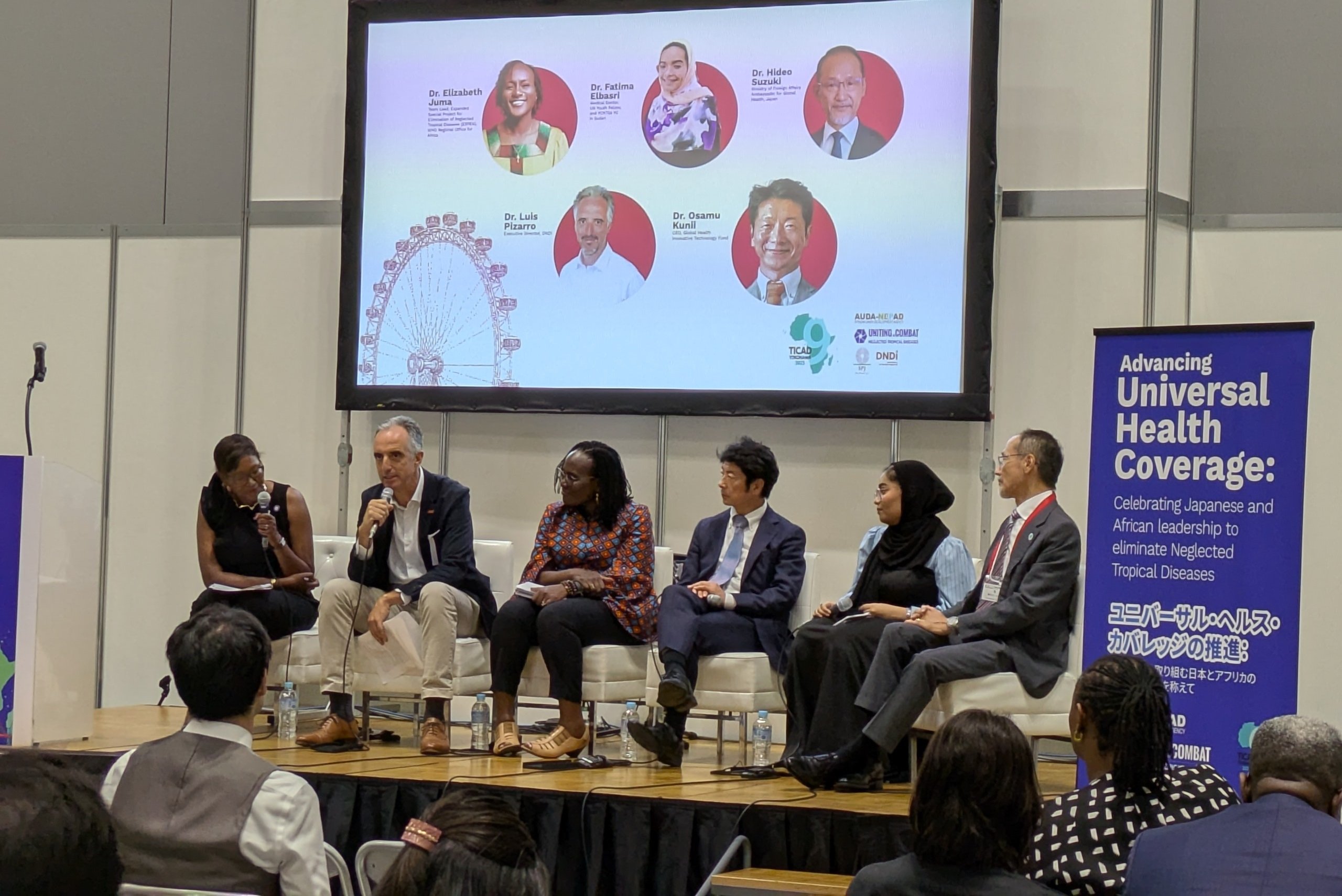
Japanese voices also reinforced the country’s role in global health. Dr Suzuki, Ministry of Foreign Affairs Ambassador for Global Health, Japan, said,
“I take these calls for continued support from Japan very seriously. Japan is one of the founding parents of GHIT to develop drugs and vaccines for NTDs. We will continue to foster this.”
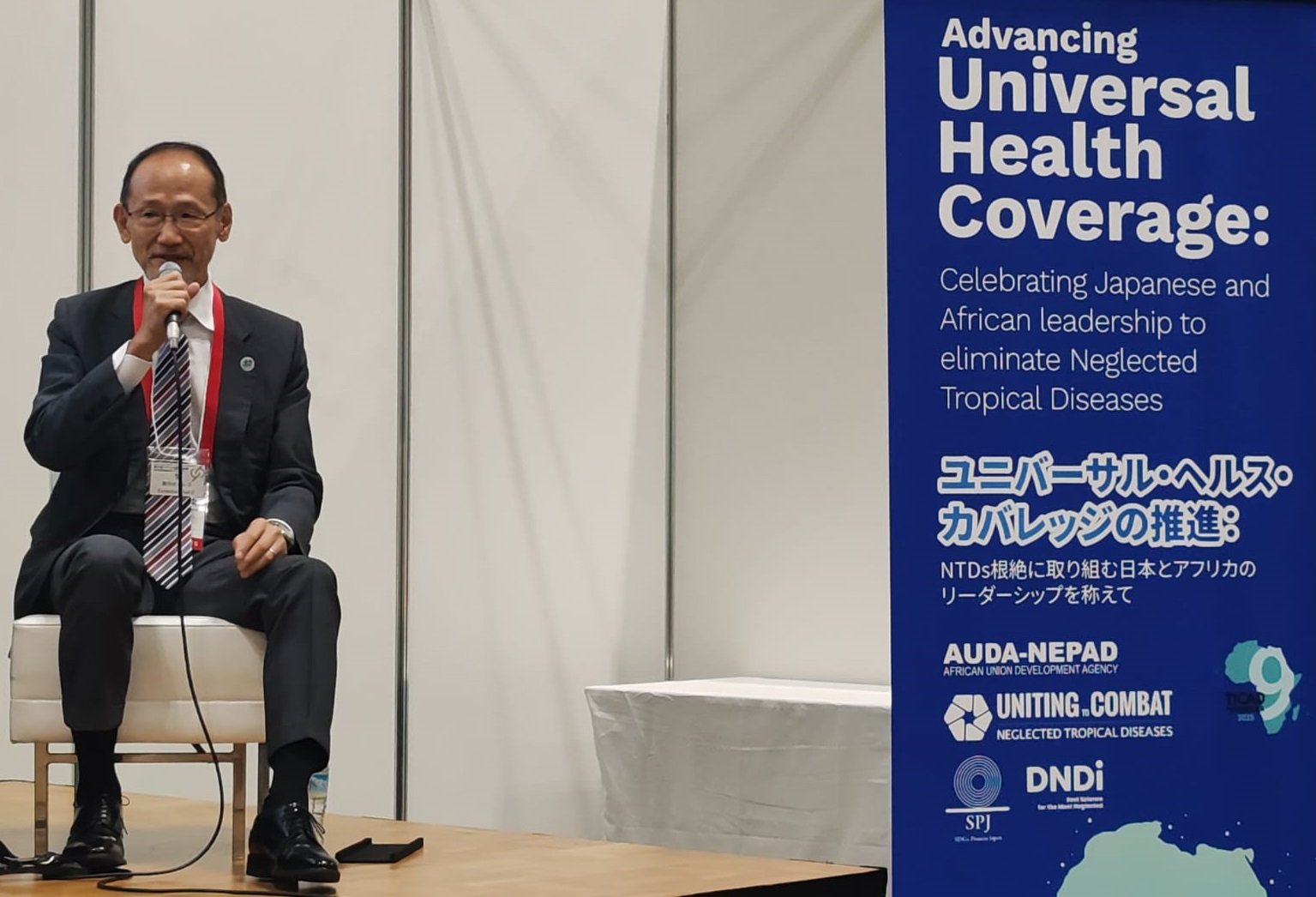
Japan’s innovation ecosystem is also a driver of progress against NTDs. The Global Health Innovative Technology Fund (GHIT), an international public-private partnership, has mobilised Japanese industry, academia and research institutes to develop new tools for malaria, tuberculosis and NTDs.
GHIT are the driving force behind the development of Pederastic Praziquantel and have a mycetoma drug, Fosravuconazole, under regulatory submission to be released in Sudan. They also have Leishmaniasis, LF and Oncho drugs in development.
Dr. Osamu Kuni, the CEO and Executive Director of the GHIT said,
“We are the catalysts to binding a variety of partners. Strengthening the partnership is a critical goal. The final product and the final process is saving lives.”
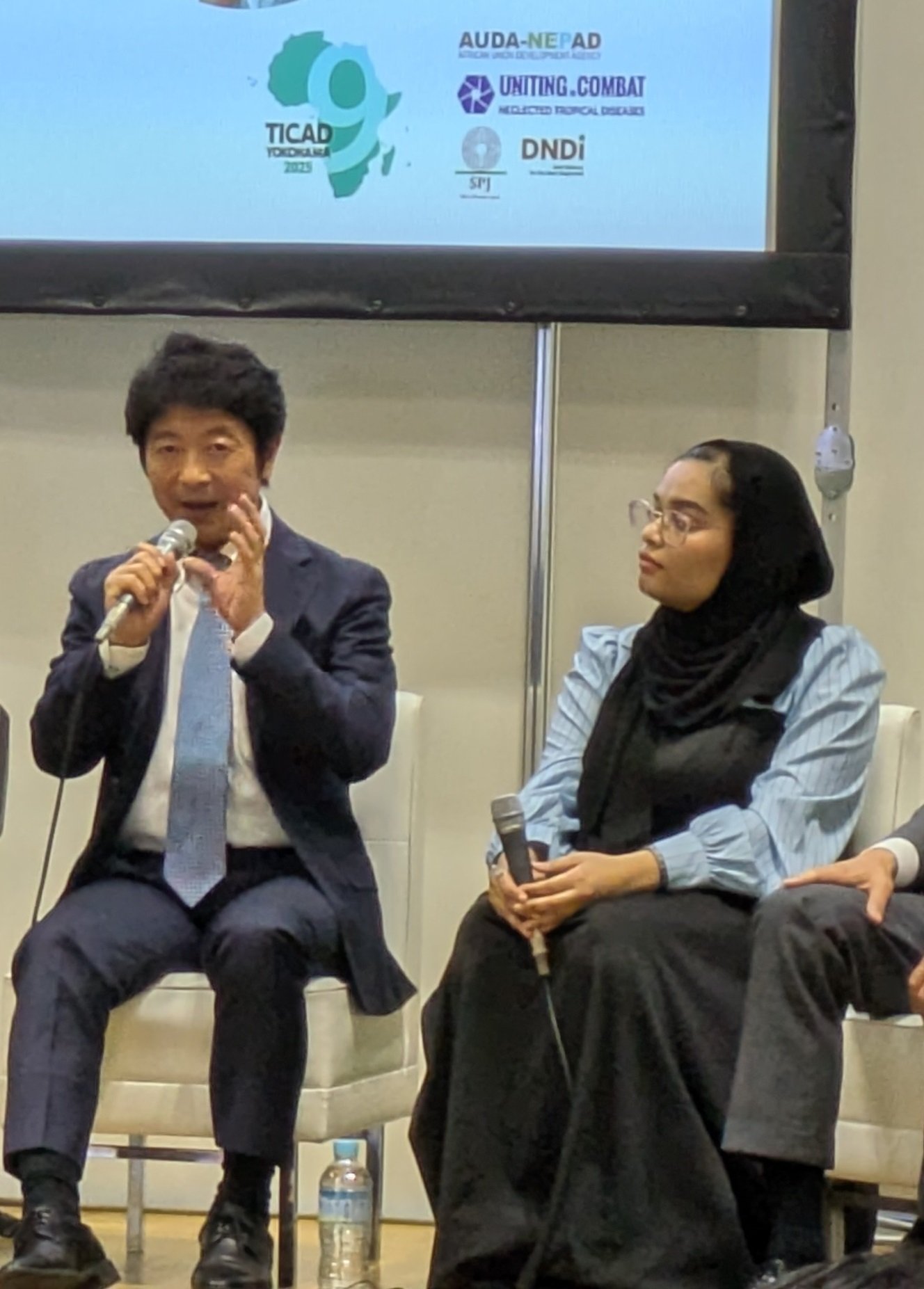
From Sudan, Dr Fatima Elbasri, a medical Doctor, UN Youth Fellow, and YCNTDs Youth Champion shared progress on advocacy and policy change. Dr Elbasri’s experience shows how advocacy can translate into real policy change.
She said,
“A key milestone was my advocacy with the Federal Ministry of Health in Sudan, which resulted in Sudan signing the Kigali Declaration on NTDs. Following this I initiated discussions with the national NTD Programme Manager to ensure Sudan applies for the IDA21 fund and integrates NTDs into the national disease elimination agenda.”
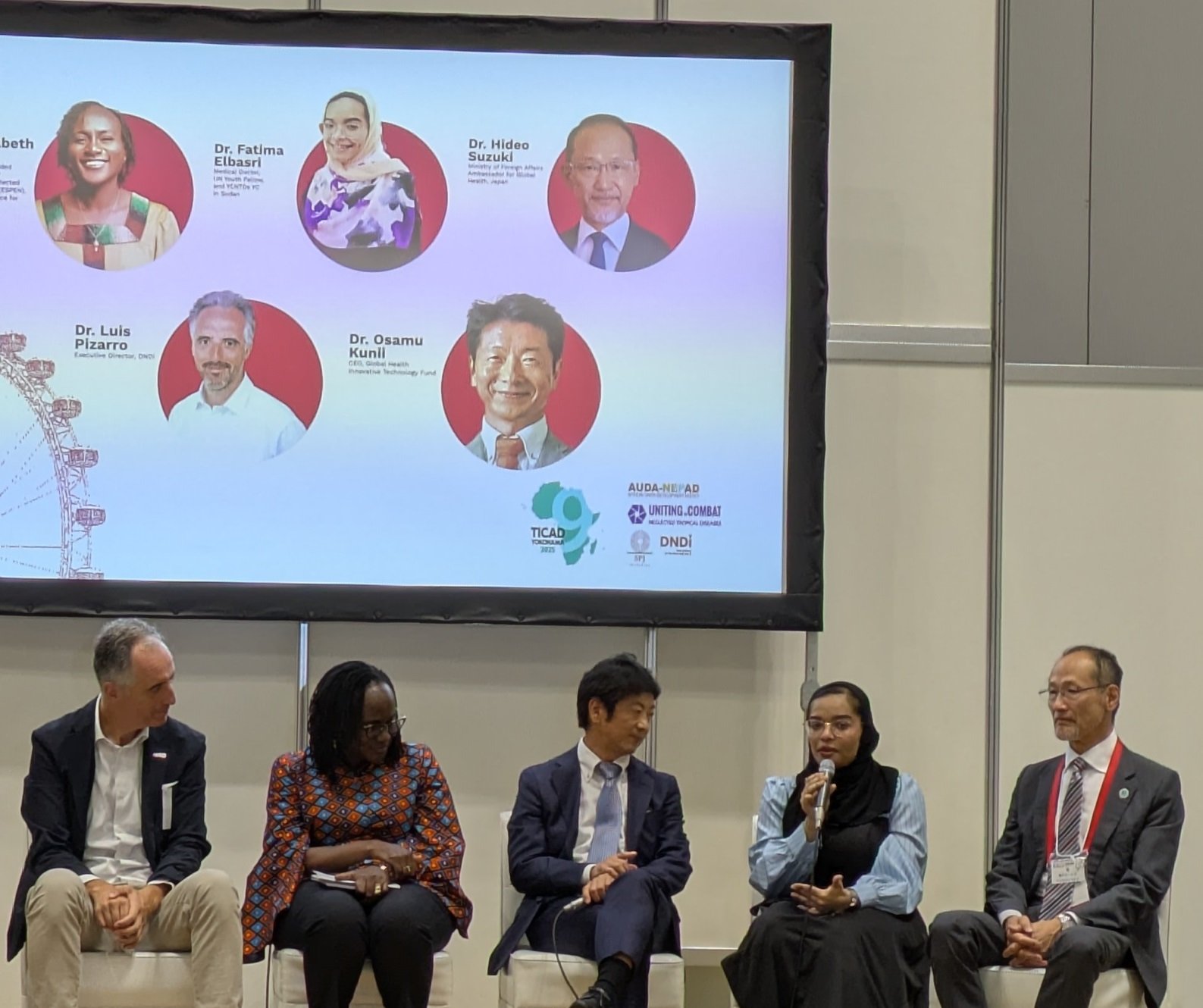
The event closed with a unified call to action. Leaders agreed that the elimination of NTDs and the achievement of UHC are both urgent and achievable goals, but only if partnerships between Africa, Japan and the wider global community are sustained and strengthened.
In the closing remarks, Dr Isatou Touray, Executive Director of Uniting to Combat NTDs called for greater investment in research and innovation
She said,
“Let us recommit today to sustained and increased investment in NTD elimination, for instance through established mechanisms such as RLMF and ESPEN, whilst continuing to be a global champion in research, innovation and product development, leveraging this knowledge for global good.”
